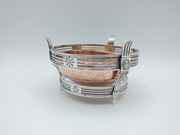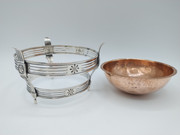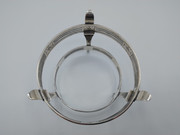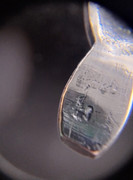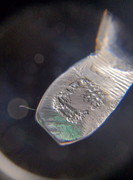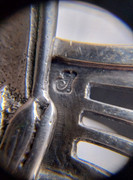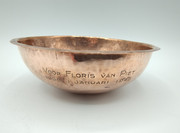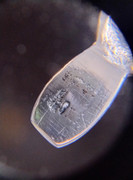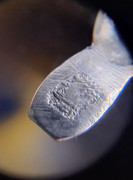Dutch silver brazier (a portable heater consisting of a copper pan or stand for holding lighted coals)

The marks, to me are deliberately made unclear and/or impossible to make anything out of this. Do not believe it to be 18th century, more likely 19-early 20th century. Like the engraving on the copper inner bowl, as Piet says for Floris in 1948.
The script-letter I used 1906-1953; Duty mark for unguaranteed standard of fineness new silver objects of national origin. This mark was used on all new Netherlands silver objects below legal standard of fineness, those with non-precious metal additions, and new heavily silver plated objects, as long as the average precious metal content after melting with the base metal was at least 250/1000. It was also struck on rejected objects which had been submitted at lowest legal standard of fineness. In that case the maker had to choose between destruction or unguaranteed marking. This mark was sometimes mistakenly used on old and foreign objects and in 1927 also used on objects of old national origin. Valid from 1906 till 1953.
Peter.
